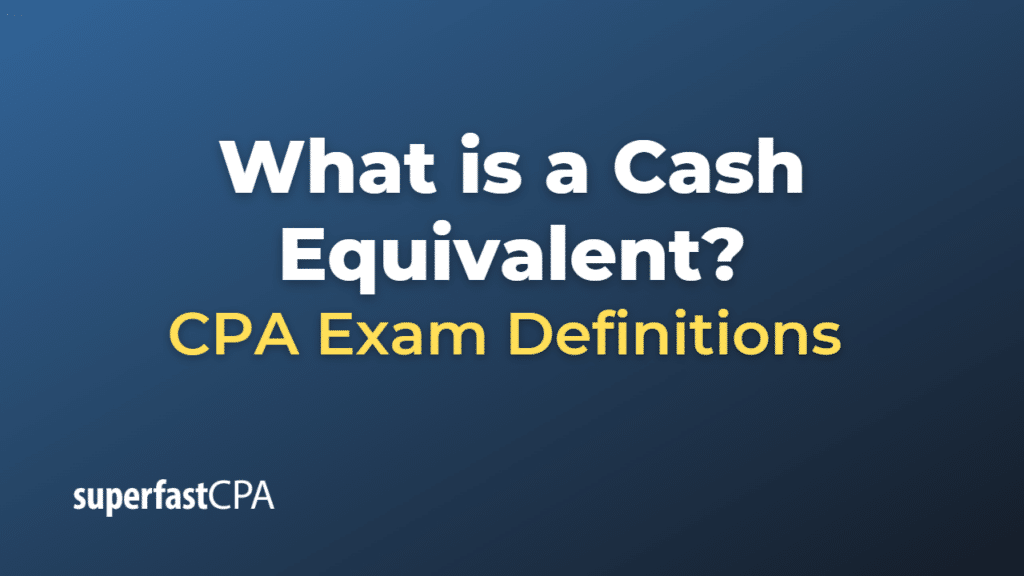Cash Equivalent
Cash equivalents are short-term, highly liquid investments that can be easily and quickly converted into cash with minimal risk of value fluctuation. These investments typically have a maturity period of three months or less from the date of acquisition, making them an ideal choice for organizations looking to park their excess cash for a short duration while still earning some interest income.
Cash equivalents are an important component of a company’s balance sheet and are included in the calculation of cash and cash equivalents when assessing a company’s liquidity and overall financial health. Examples of cash equivalents include:
- Treasury bills: Short-term government securities issued by the U.S. Treasury, typically with maturities of three months or less.
- Commercial paper: Short-term, unsecured promissory notes issued by corporations, usually to finance their working capital needs.
- Money market funds: Mutual funds that invest in short-term, high-quality debt securities, such as treasury bills and commercial paper, providing a high degree of liquidity and safety.
- Certificates of deposit (CDs): Time deposits offered by banks, typically with maturities ranging from a few weeks to a few months, that pay a fixed interest rate.
- Bankers’ acceptances: Time drafts drawn on and accepted by a bank, usually to facilitate international trade transactions, that can be sold at a discount in the secondary market before maturity.
Cash equivalents are considered relatively safe investments, as they are less vulnerable to market fluctuations and credit risk due to their short maturity periods and high credit quality. However, it’s important to note that even these investments carry some risk, such as interest rate risk, credit risk, or liquidity risk, albeit to a lesser extent compared to longer-term investments.
Example of a Cash Equivalent
Let’s consider a hypothetical example of a company, “XYZ Corporation,” and its cash and cash equivalents on the balance sheet.
XYZ Corporation has the following balances as of the end of the quarter:
- Cash in bank accounts: $100,000
- Treasury bills (maturity within 90 days): $50,000
- Commercial paper (maturity within 60 days): $25,000
- Money market fund: $75,000
- 6-month Certificate of Deposit (CD): $40,000
To calculate the cash and cash equivalents for XYZ Corporation, we need to consider only those investments that have a maturity period of three months or less.
In this case, the 6-month CD does not qualify as a cash equivalent due to its maturity period exceeding three months. Therefore, we exclude it from the calculation.
Cash and Cash Equivalents = Cash in bank accounts + Treasury bills + Commercial paper + Money market fund
Cash and Cash Equivalents = $100,000 + $50,000 + $25,000 + $75,000 = $250,000
XYZ Corporation’s cash and cash equivalents total $250,000. This figure represents the company’s highly liquid assets, which can be easily accessed and converted into cash if needed. Cash and cash equivalents are essential in assessing a company’s liquidity, financial stability, and ability to meet short-term obligations.













